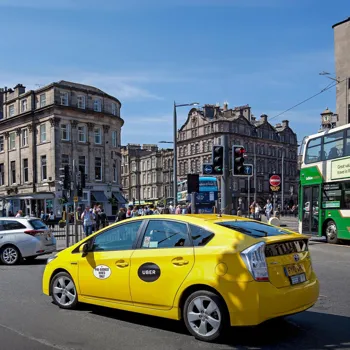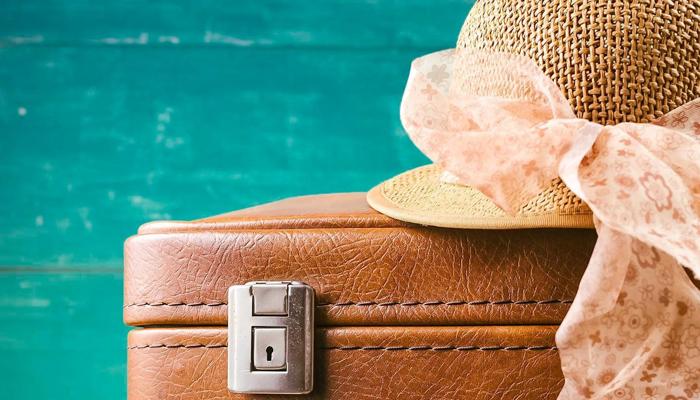Travel Safety: How to Avoid Common Scams While Abroad. Stay informed to protect yourself and enjoy worry-free travels
Going abroad for a holiday or work can be a very exciting experience. Seeing new places,
experiencing different cultures, and making memories is something many people dream of. However, it's important to remember that some people might try to take advantage of tourists.
These scams can range from simple overcharging to more elaborate tricks that can leave you feeling cheated and vulnerable. Being aware of these scams and taking precautions can help you enjoy your trip without any unpleasant surprises.
Remember, a little bit of awareness can go a long way in protecting yourself and your belongings. So, before you pack your bags and head out, let's learn about some common travel scams and how to avoid them.
Be cautious at ATMs to avoid scams while traveling
One common scam targets tourists at ATMs. Scammers might install a fake card reader or keypad overlay to steal your card information and PIN. Always inspect the ATM before using it. Look for anything that seems loose, damaged, or out of place.
Cover the keypad with your hand when entering your PIN to prevent anyone from watching. Use ATMs located inside banks or well-lit, public areas. Be wary of anyone offering unsolicited help while you're using the ATM.
If you notice anything suspicious, cancel your transaction and use a different ATM. It's also a good idea to notify your bank about your travel plans so they don't block your card for suspicious activity.
These simple precautions can significantly reduce your risk of falling victim to this type of scam. Being vigilant and aware of your surroundings is key to staying safe.
Beware taxi scams when traveling, agree on fare, use ride-hailing apps, stay alert
Another popular scam involves taxi drivers overcharging tourists or taking them on longer, unnecessary routes. Always agree on a fare before getting into a taxi, or insist that the driver uses a meter. If the driver refuses, find another taxi.

Use ride-hailing apps like Uber or Ola in countries where they're available, as these apps provide a transparent pricing system and track the ride's route. Be aware of common landmarks of a city or your destination to ensure the driver is taking a direct route.
Don't be afraid to question the driver if you feel they are taking a longer route than necessary. Keep your luggage with you and be aware of the route the taxi is taking. Being assertive and informed can help you avoid being ripped off.
Also, it's worth remembering that some drivers may pose as taxi drivers, but are actually not registered. Opt for booking from the official services at the airport.
Beware of pickpockets in tourist areas, stay alert and secure valuables
Pickpockets are a common nuisance in crowded tourist areas. They often work in teams, with one person distracting you while another steals your belongings. Keep your valuables in a secure place, such as a money belt worn under your clothes or a zippered pocket inside your bag.
Be especially careful in crowded markets, public transportation, and popular tourist attractions. Avoid keeping your wallet or phone in your back pocket, as it's easily accessible to thieves. Be aware of your surroundings and avoid getting distracted by street performers or other commotion.
If someone bumps into you or gets too close, check your belongings immediately. Carrying a dummy wallet with a small amount of cash can be a useful tactic. Remember, being aware and taking precautions is the best way to protect yourself from pickpockets.
Beware of fake police officers demanding personal belongings
Fake police officers are another type of scam to be aware of. These individuals may approach you and demand to see your identification or wallet, claiming they are investigating a crime.
Never hand over your wallet or personal documents to anyone claiming to be a police officer unless you are in a legitimate police station. Ask for their identification and try to verify their credentials.
If you're unsure, politely refuse and walk away to a public place where you can call the real police. Report the incident to the authorities immediately. If you're stopped by someone claiming to be a police officer, take note of their appearance and any details about their vehicle.
Remember, genuine police officers will not demand to see your wallet or money on the street.
Beware of free item scams, decline unsolicited gifts to avoid demands for payment
Free item scams are another thing to keep in mind. Someone might offer you a "free" bracelet, flower, or massage and then demand payment for it. Politely decline any unsolicited gifts or services. If someone tries to force an item on you, firmly say "no" and walk away.

Avoid making eye contact or engaging in conversation with these individuals, as they may become more persistent. Even if the item seems harmless, accepting it can lead to an uncomfortable situation and demands for money. Be especially wary of these scams in tourist hotspots and crowded areas.
It's always best to be cautious and avoid accepting anything you haven't specifically asked for or purchased. Don't fall for fake petition scams where you're convinced to sign something and then asked for payment.
Travel scams can ruin trips; be informed, stay safe, and trust instincts
To summarise, travel scams can put a damper on your trip. Staying informed of the most common scams and following safety tips will let you enjoy your travels worry-free. Remember to stay vigilant, be aware of your surroundings, and trust your gut.
AI Generated Content. Glance/InMobi shall have no liability for the content












